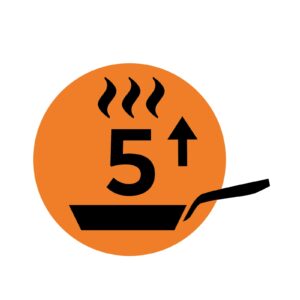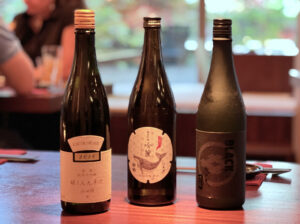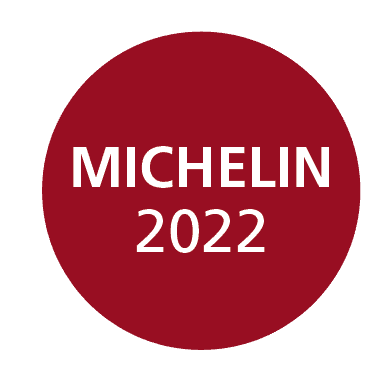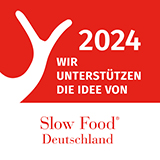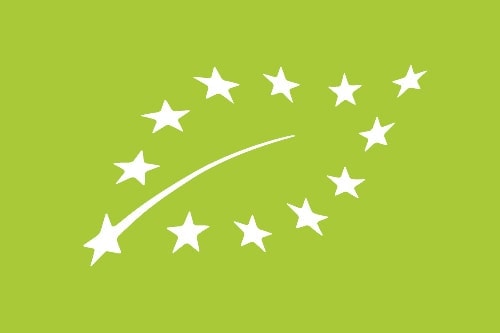Comment by Alexander Reinelt, Founder and Managing Director of SUSHIYA GmbH in Munich
We - and many others - have used the periods of closure to adapt to the new challenges as best we can, within the limits of our capabilities, and to meet all the Develop hygiene measures in such a way that guests could be well protected from infection.
Unsettled by reports of skyrocketing incidences on the one hand and the 10 p.m. curfew on the other, come considerably fewer guests. In our case, this accounts for an incursion of 55% over several weeks. Even the protective measures, such as powerful air cleaners, plastic partitions and reduced number of seats (and that is also only limited inviting and cozy) little help: the guests stay away from 20.15h predominantly simply. Hardly a guest may come more from 20.15h, if he has to leave the restaurant at 22h - let alone enjoy a good bottle of wine or Sake drinks
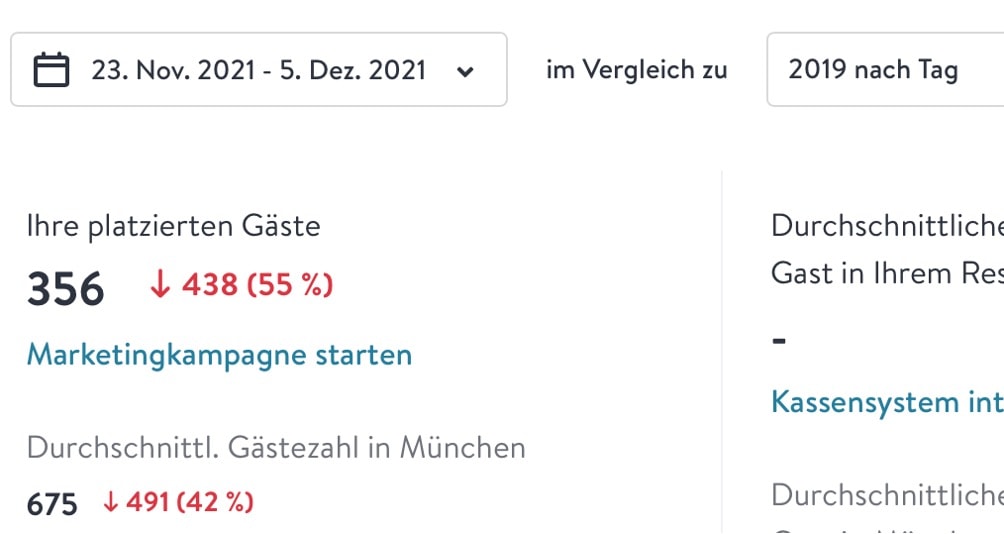
Our reservation book shows a dramatic drop in guest numbers compared to 2019
10 p.m. curfew does not increase safety in restaurants
Of course: no one wants to imagine, in a winter with strongly increased incidences, that a few irresponsible people in bars, pubs, discotheques or restaurants get too close to each other under the influence of alcohol, exchange and spread viruses or perhaps even become seriously ill.
But the hard curfew at 22h damages above all the earning capacity of the set, often high-quality and responsible dining restaurants. The curfew was already a bad idea in 2020 and is absolutely counter-intuitive now that there is 2G and incentives need to be in place for vaccinated individuals and controlled, well-ventilated spaces!
Strictly speaking, the opposite of what is intended is achieved: those who want to meet with greater freedom in terms of time do not do so in a checked and air-cleaned restaurant, but in a private and much less controlled space.
From the rural area we get reports that people no longer meet in the economy - but in some illegal construction vehicles. In the big city, delivery services then deliver alcohol and food to private rooms, where no one asks for a 2G certificate and the restaurateur, who takes all possible measures and provides staff for the control, loses all Christmas parties.
22h curfew threatens the existence of dining restaurants
A sharp closing time 22h dissects the dining restaurant - in addition to the lower attendance of the first occupancy - the second occupancy almost completely! For many restaurants, this makes the difference between insolvency and survivability!
A properly run restaurant is dependent on every euro of turnover right now in order to survive this crisis. With the restrictions imposed here, this can no longer work!
22h curfew pushes meetings into private space
In most restaurants the last order goes to the kitchen at 22h. New guests do not come at this time for a long time, the already present (!) Sit still comfortably, eat to the end. In this last hour, the risk of infection is absolutely not increased, but a relaxed visit to the restaurant with peace and quiet to eat and talk is made possible. If this is no longer possible, the guests prefer to stay at home - not everyone wants to eat early and in a hurry.
Bridging aids must be adjusted
Now you might think, why are the restaurateurs whining? There are supposedly great bridging aids!
But this, unfortunately, is the second side of the pincer into which the restaurants are caught: The economic aids that have been granted so far no longer work, because they have - so far - not been adapted to the changed conditions or even severely restricted.
The problem with state aid is in the details: many of the current aids (Ü3/Ü3+) you only get if you have at least 30% revenue loss on the comparison period 2019. This was plausible and a good benchmark in the beginning - in the meantime, costs have risen so much that it can no longer be enough!
If bridging assistance is still to serve its purpose, it must be adjusted to reflect the actual cost situation.
Bridging aid disregards increased cost level and adjusted prices
In 2019, sales levels were completely different than in 2021, both in terms of price and labor costs. Many restaurants had to raise prices in response to the summer pandemic.
However, not all cost increases can be passed on as quickly as they occur: many suppliers are charging daily prices for food, which have risen enormously in recent months. Energy costs have also seen explosive growth recently. The loss of employees means that more money has to be spent in order to have any staff at all.
The conditions for aid were additionally worsened
It is not the case that a cook and a service employee can be put on short-time work because no more guests come after 20.30 hrs. The staff is still needed for the time before that.
Corona will not be overcome by driving more restaurants into economic traps. Politicians seem to be avoiding a clear lockdown in part because restaurants would then simply close and employees would be on reduced hours. There is again the same incremental forward-backward game as already in 2020.
(Update: on December 15, we hear that the aids of the Ü3+ should also be paid if one closes for economic reasons - For the period from the end of November to mid-December 2021, however, this no longer retroactively helps those who dutifully remained open. Personnel and operating costs have been incurred).
Sales tax cut for restaurants must remain in place permanently
The future of restaurants depends on suitable aid in the crisis
The details of the regulations that are now being decided will determine whether the restaurant industry can remain a part of public life, or whether only fast-food restaurants and delivery services will be able to stay in the market.
Please help restaurants survive
The catering industry is a reliable partner for the state when it comes to measures that reduce the risk of infection. If only out of an interest in self-protection, but of course also because hygiene and guest safety are important here in particular. It has been creative in taking measures to protect guests.
Now, once again, careless political action threatens severe and lasting damage to this important sector of the economy. The measures must be clarified with those who are familiar with the impact on the catering industry.
Contact the responsible politicians
We require or support:
- free PCR citizen testing reintroduce, so that everyone can test themselves reliably, easily and regularly, especially for (us) vaccinated as a double check! (As is known, rapid tests are only reliable to a limited extent).
- One Immediate withdrawal of the curfew 22h, which represents a 50% lockdown for the restaurant industry and makes economical operations impossible in many places.
- Permanent reduction of the tax rate for hosted guests to 7%, because the former 19% are anyway a hardly explicable disadvantage for restaurants and for many businesses, like us, it will take years to work off burdens from the Corona crisis - if they survive at all!
- However, the decisive factor is above all that adapted the current aids become to the situation in late November / early December 2021, where a toxic combination of aids and lockdown light via curfew 22 clock was created!
We all want to get a handle on this pandemic together, but the economic and political impact must be "survivable." We at SUSHIYA would rather go along with a hard lockdown with adjusted aid like the November/December 2020 aid when in doubt.
But the current conditions can no longer be tolerated by us and by many restaurants and inns.
As restaurateurs, we have been driven into constant, extreme existential hardship and worry since the beginning of the crisis - and for our part we are trying to help as best we can to overcome it.
However, the specifications that suddenly appear in the fall of 2021, some of which are nonsensical or destructive, put us in checkmate on the home stretch!
Please help ensure that the very restaurants that have survived the pandemic restrictions with great effort to this point don't have to give up now after all.
Write to the politicians you know, the member of parliament responsible for your city area, no matter which party (in our case this is Bernhard Looswho even advertises with the legendary Obstandl-Didi on his homepage) or to the Bavarian State Government and make you aware that you want to be able to continue to visit good restaurants and that restrictions and compensatory measures must be reasonable and well thought out. Thank you!

